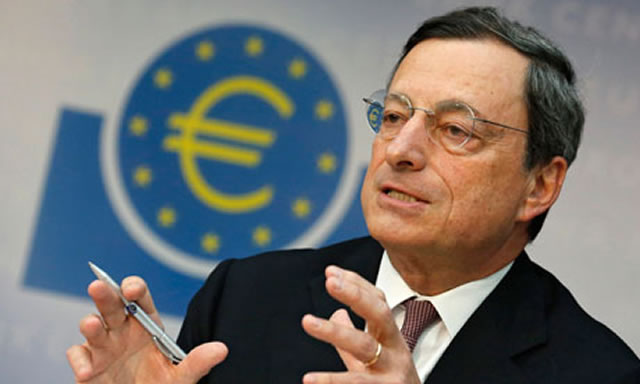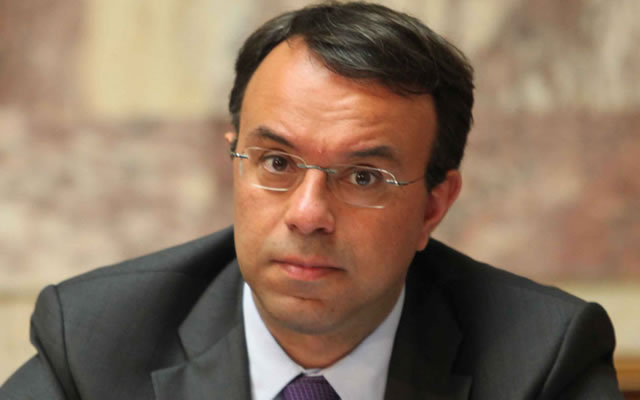EU shuts failing euro-zone banks

Brussels — Europe took the final step to complete a banking union last Thursday with an agency to shut failing euro zone-banks, but there will be no joint government back-up to pay the costs of closures.The breakthrough ends an impasse with the European Parliament, which persuaded euro zone countries to strengthen the scheme. It completes the second pillar of banking union, which starts at the end of the year when the European Central Bank takes over as watchdog.
The accord means that the ECB has the means to shut banks it decides are too weak to survive, reinforcing its role as supervisor as it prepares to run health checks on the still fragile sector.
ECB President Mario Draghi said that plans to allow the new ‘resolution’ or clean-up fund to borrow to top itself up looked promising and that the decision-making scheme to shut a bank had been streamlined.
“The point we’ve always made that we need a mechanism that is properly funded and the agreement actually improves the existing funding,” Draghi told journalists as he entered a meeting of European Union leaders.
“All in all we made progress for a better banking union.”
Michel Barnier, the European commissioner in charge of regulation, said the scheme would help to bring “an end to the era of massive bailouts”.
“The second pillar of banking union will allow bank crises to be managed more effectively,” he said.
Thursday’s agreement makes it harder for EU countries to challenge the ECB if the central bank triggers bank closures, and establishes a common 55 billion euro back-up fund over eight years — quicker than planned but far longer than the ECB’s watchdog had hoped.
But the new system, which Barnier conceded was not ‘perfect’, has shortcomings.
For one, the ‘resolution’ fund is small and would, in the view of the ECB watchdog, be quickly spent. To remedy that the fund will be able to borrow to replenish spent money.
Euro zone governments will not, however, club together to make it cheaper and easier for it to do so.
The 18 euro zone countries do not intend to cover jointly the cost of dealing with individual bank failures, a central tenet of the original plan for banking union.
Germany resisted pressure from Spain and France to make such a concession.
Its finance minister Wolfgang Schaeuble welcomed new rules forcing bank creditors to take losses and that “the mutualised liability … remained ruled out” — a reference to sharing the burden of a bank collapse.
Neither will there be any joint protection of deposits.
Almost seven years since German small business lender IKB became Europe’s first victim of the global financial crisis, the region is still struggling to lift its economy out of the doldrums and banks are taking much of the blame for not lending.
The banking union, and the clean-up of banks’ books that will accompany it, is intended to restore their confidence in one another.
It is also supposed to stop indebted states from shielding the banks that buy their bonds, treated in law as ‘risk-free’ despite Greece’s default in all but name.
Under the deal reached, a fund made up by levies on banks will be built up over eight years, rather than 10 as originally foreseen. Forty percent of the fund will be shared among countries from the start and 60 percent after two years.
It also envisages giving the European Central Bank the primary role in triggering the closure of a bank, limiting the scope for country ministers to challenge such a move.
Mark Wall, Deutsche Bank’s chief euro zone economist, said new rules to impose losses on the bondholders of troubled banks would reduce the burden on the fund but warned that its size was too modest. “A cross-European fund of the size of 55 billion raises some eyebrows in terms of scale,” he said.
The fund will be able to borrow against future bank levies but will not be able to rely on the euro zone bailout fund to raise credit.
Critics say this means primary responsibility for problem lenders remained with their home countries and that the banking union will never live up to its name.
“The key to the banking union is an authority with financial clout. They don’t have it so we don’t have a banking union,” said Paul De Grauwe of the London School of Economics.
“The whole idea was to cut the deadly embrace between bank and sovereign. But if a banking crisis were to erupt again, it would be back to how it was in 2008 with every country on its own.”
Carsten Brzeski, an economist at ING, said the decision-making process to shut a bank was too complicated and long-winded.
The fragility and politicised nature of Europe’s banks has been highlighted by ailing Austrian state lender Hypo Alpe Adria HAABI.UL. Vienna will sponsor a bad bank to isolate roughly 18 billion euros of bad loans extended by the bank after Joerg Haider, the far-right politician who governed its home province, earlier ramped up its activities.
Despite the bank’s impact on national debt, many politicians feel Austria has little choice. Were banking union in place, the situation would be little different.—Reuters











Comments